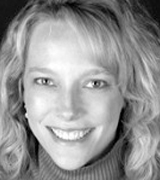 |
|||||
LaTonya Trotter
Developing an awareness of social structure is not something one memorizes from a lecture; it is something one practices. My students practice this awareness through reading, discussing, and writing about contemporary cases ranging from the diagnosis of fetal alcohol syndrome to the epidemic of heroin addiction. Through a sustained analysis of these cases, students are able to better understand how a society’s values and ongoing conflicts are reproduced through seemingly objective medical categories and institutions. I hope that developing my student’s sociological perspective is more than an academic exercise, but is one they can use to tackle the kinds of problems they will encounter in their own careers. Because I want to build a sense of connection between what happens in the classroom and the larger world, I have begun to challenge myself to expand the audience for student work. For the last few years, I have asked students to submit a portion of their written work as content for a classroom blog. I find that when students are writing for their peers rather than a secret missive to me, their narrative tone shifts—writing for an actual audience raises their level of engagement and broadens the scope of their arguments. I get immense value out of seeing what our undergraduates are capable of when they stop “turning in homework” and start advancing ideas. The longer I teach, the more convinced I become that asking students to create content “for my eyes only,” is a wasted opportunity. I am currently experimenting with ways to expand the viewership of student work outside of the classroom, so stay tuned!
Courtney CookMy interest in teaching developed as an extension of my clinical practice. In my former role, I practiced full time clinically as an Acute Care Nurse Practitioner (ACNP) in the Neuroscience Intensive Care Unit (NSICU) at the University of North Carolina-Chapel Hill Hospital System. Through this experience, I was able to interact with medical students and residents. I eventually became clinical faculty at UNC School of Medicine where I taught third and fourth year medical students during their neurology clerkship in the NSICU. I was captivated by their passion for learning and commitment to helping care for critically ill patients. Eventually, I realized that teaching made me a better clinician and vice versa. I decided to pursue my doctorate in nursing to equip myself with the skills and credentials to be able to pursue an academic role. My passion is for clinical practice. I realized that individually the impact I can make on patients is somewhat limited, however, if I can contribute to educating 70 (+) nurse practitioners a year, suddenly the effect on patients’ lives increases exponentially. At Vanderbilt, I have been able to have a dual appointment so that I can teach and continue to practice clinically.
THATCamp Vanderbilt: Explore the Digital Humanities November 6-7 |
|
An Enticing Glimpse into Your Classroom: Crafting an Effective Teaching Portfolio
In this workshop we will gather and select documentation to help capture your unique approach to teaching. As a participant, you will receive individualized feedback on your documents which will help you determine how best to describe your pedagogy and to discern which items highlight your effectiveness as a teacher. This workshop is open to Vanderbilt graduate students from the departments of English, Creative Writing, and Philosophy.
Date: Wednesday, Nov 18th
Time: 3:30-5:00pm
Location: Center for Teaching
Facilitator: Kirsten Mendoza, Graduate Teaching Affiliate
Graduate Student & Postdocs Register Here
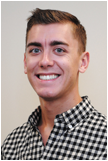
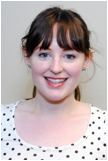 Improv for the Millennial Learner
Improv for the Millennial Learner
Never far from an Internet connection, today’s university students move indiscriminately between the online and physical realms. The presence of these “digital natives” (Prensky, 2001) on college campuses nationwide—and the attendant fear that our work as researchers and educators will be indecipherable to them—has fueled a number of initiatives in higher education, from changes in course management platforms to the nigh ubiquitous job postings for digital humanities scholars. Yet, the urgency that undergirds these calls for innovation ignores the hybridized experience of Millennial Learners. In this workshop, we will explore techniques for engaging digital natives using improvisation techniques. Participants will learn about relevant research in teaching and learning before moving through a series improv exercises adapted for the classroom.
Date: Monday, Dec 7th
Time: 3:30-5:00pm
Location: Center for Teaching
Facilitators: Ben Galina & Jane Hirtle
Graduate Student & Postdocs Register Here
Graduate Fellow Wins Poster Award at Health Professions Education Research Day
By Dani Picard, CFT Graduate Teaching Fellow
 Hannah Krimm, PhD student in Hearing & Speech Sciences and a BOLD Fellow, recently received the Blue Ribbon Poster Award at the 2015 Gerald S. Gotterer Health Professions Education Research Day (HPERD).
Hannah Krimm, PhD student in Hearing & Speech Sciences and a BOLD Fellow, recently received the Blue Ribbon Poster Award at the 2015 Gerald S. Gotterer Health Professions Education Research Day (HPERD).
Hannah’s poster, entitled “Effect of an Online Learning Module for Transcription and Phonological Awareness,” is based on the study and development of the learning module she completed with her mentor, Melanie C. Schuele, Associate Professor of Hearing & Speech Sciences, as part of the BOLD Fellows program.
Judges awarded Hannah the blue ribbon based on the poster's content/project design (e.g., clarity of writing, soundness of conclusions, potential impact on education) and on artistic design/impression (e.g., use of color, readability, overall visual attraction).
In reflecting on her project, Hannah explained that she chose this project because she believed her Hearing and Speech Sciences students could benefit from an online learning module. She explained, “the best way to address the persistent gap between research and clinical practice is to educate exceptional practitioners. In my field technology does not seem to be leveraged to its full potential for the purpose of pre-service and in-service education. I wanted to build blended and online learning into my skill set with the ultimate goal of using technology more effectively to make real changes in clinical practice that result in better outcomes for kids with speech, language, and literacy needs.”
As part of the program, Hannah developed learning goals and objectives that helped her design assessment and instruction targeted at her learning goals. She explained that the BOLD program has also helped her revise other lesson plans: “The BOLD program really helped me to clarify the path from desired outcomes, to assessment, to instruction. It has informed my teaching and given me a framework with which to design courses. I have created some additional online learning modules to supplement assigned readings, and the feedback from students has been generally positive about this method.”
When asked about her biggest takeaway, she stressed the importance of experimenting with educational technologies as a way to focus on student learning outcomes: “I knew we weren’t using technology as effectively as we could, but I was surprised by everything that technology CAN do. It is amazing how much data you can collect on student learning to inform your teaching using online tools.”
Congratulations to Hannah for this award!
You can learn more about Hannah’s project and learning module on the BOLD website.
![]()
BOLD Fellows Program Now Accepting Applications for 2016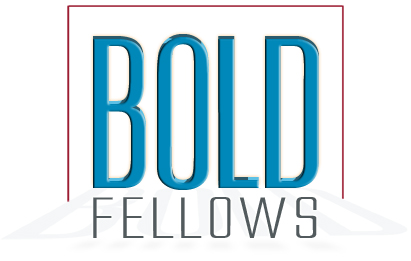
The BOLD Fellows program is designed to help graduate student/faculty teams build expertisein developing online instructional modules grounded in good course design principles and our understanding of how people learn. STEM faculty members partner with graduate students or postdocs to design and develop online modules for integration into a course, either as a tool to promote flipping the classroom, a module for a blended course, or a unit to supplement an existing course.
The teams implement these modules in an existing class and investigate theirimpact on student learning. The program is a collaboration between Vanderbilt’s Center for Teaching and the CIRTL Network (Center for the Integration of Research, Teaching, and Learning). Example projects are described in the BOLD project gallery.
This two-semester program is divided into a “design and development” semester, in which Fellows receive intensive training and support as they develop their module, and an “implementation and assessment” semester. We are currently recruiting Fellows to begin the program in January for implementation and assessment in the following Fall semester. The Fellowship carries a modest stipend as well as the opportunity to apply for travel funds to share this work at a conference. For more information about the program, including a video from the inaugural group of BOLD Fellows and application information, see the CFT’s BOLD program page.
Applications are due December 4; decisions will be made by December 15.
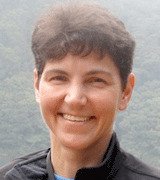 Katherine Crawford
Katherine Crawford